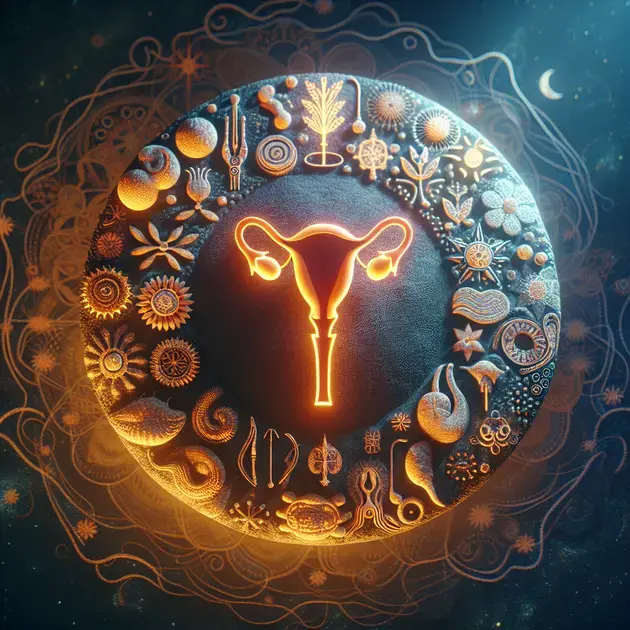Dealing with the sensation of feeling like you need to pee constantly can be not only uncomfortable but also disruptive to your daily life. This common issue, also known as urinary urgency, can have various underlying causes that range from simple lifestyle habits to more serious medical conditions.
Understanding the factors contributing to this persistent need to urinate is crucial in finding effective solutions and achieving relief. From bladder irritants to urinary tract infections, exploring the potential reasons behind your symptoms is the first step towards regaining control over your bladder health.

Causes Explained: Unveiling the Reasons Behind the Constant Urge to Pee
Experiencing a constant urge to pee can be attributed to various reasons, from lifestyle habits to underlying medical conditions. Understanding the causes behind this sensation is crucial for effective management. One common cause is an overactive bladder, where the muscles in the bladder contract involuntarily, causing frequent urges to urinate. This can be managed through lifestyle changes and medications, as recommended by healthcare professionals.
Another possible cause is urinary tract infections (UTIs), which can lead to a persistent urge to pee, along with other symptoms such as burning sensation during urination. UTIs are usually treated with antibiotics, and lifestyle changes like staying hydrated can help prevent them. Additionally, certain beverages like alcohol and caffeine can irritate the bladder, leading to increased urgency. Limiting the intake of these beverages can help reduce the urge to pee.
To address the constant urge to pee, techniques such as bladder training can be beneficial. Bladder training involves gradually increasing the time between bathroom visits to help retrain the bladder to hold more urine. This process can take time and consistency but can be effective in reducing the frequency of the urge to urinate. Mobile apps like “Bladder Trainer” provide step-by-step guidance on how to implement bladder training effectively.
In some cases, conditions like interstitial cystitis or bladder stones can also contribute to the constant urge to pee. Interstitial cystitis is a chronic condition that causes bladder pain and frequent urination, while bladder stones can irritate the bladder and increase urgency. Seeking medical advice and proper diagnosis is essential for addressing these underlying conditions.
By understanding the various causes behind the constant urge to pee and implementing appropriate strategies, individuals can effectively manage this symptom and improve their quality of life.
Lifestyle Changes: Simple Solutions for Managing Urinary Urgency
Making simple lifestyle changes can have a significant impact on managing urinary urgency. One key strategy is to practice pelvic floor exercises, also known as Kegel exercises, which can help strengthen the muscles that control urination. These exercises can be easily done at home with the help of apps like “Kegel Trainer” that provide instructions and tracking features.
Another lifestyle change that can help manage urinary urgency is maintaining a healthy weight. Excess weight can put pressure on the bladder, leading to increased urgency. By adopting a balanced diet and incorporating regular physical activity, individuals can achieve a healthy weight and reduce the strain on their bladder.
Stress management techniques such as meditation, deep breathing exercises, or yoga can also play a role in managing urinary urgency. Stress can exacerbate bladder symptoms, so finding ways to relax and unwind can be beneficial. Apps like “Calm” or “Headspace” offer guided meditation sessions and relaxation techniques to help reduce stress levels.
Limiting the intake of bladder irritants such as spicy foods, artificial sweeteners, and citrus fruits can also help reduce urinary urgency. These foods can irritate the bladder lining, leading to increased urgency and frequency. Keeping a food diary with the help of apps like “MyFitnessPal” can help track bladder irritants and identify triggers.
Incorporating adequate water intake and maintaining regular bathroom habits are essential for managing urinary urgency. It’s important to stay hydrated throughout the day while avoiding excessive fluid intake before bedtime to prevent nighttime urges. Establishing a consistent bathroom schedule using reminders from apps like “WaterMinder” can help regulate urination patterns.
Medical Conditions: Addressing Serious Issues Related to the Need to Pee
When the constant urge to pee is accompanied by other concerning symptoms, it may indicate underlying medical conditions that require professional attention. One serious condition that can cause urinary urgency is overactive bladder syndrome. This condition is characterized by a sudden, uncontrollable urge to urinate, often leading to involuntary leakage. Treatment may include medication, bladder training, and in severe cases, surgery.
Neurological disorders such as multiple sclerosis or Parkinson’s disease can also contribute to urinary urgency. These conditions affect the nerves that control bladder function, leading to disruptions in the normal urination process. Managing these conditions often involves a multidisciplinary approach, including medications, physical therapy, and lifestyle modifications.
Prostate enlargement in men can lead to urinary urgency and other urinary symptoms. Benign prostatic hyperplasia (BPH) is a common condition in older men that causes the prostate gland to enlarge, obstructing the flow of urine. Treatment options range from medications to minimally invasive procedures or surgery, depending on the severity of symptoms.
In some cases, urinary urgency may be a sign of more serious conditions such as bladder cancer or interstitial cystitis. Bladder cancer can cause blood in the urine along with urgency, while interstitial cystitis is a chronic bladder condition characterized by pelvic pain and urinary urgency. Prompt diagnosis and treatment are crucial for managing these conditions effectively.
It’s essential to consult a healthcare provider if the constant urge to pee persists or is accompanied by pain, blood in the urine, or other concerning symptoms. Early detection and proper management of underlying medical conditions can help prevent complications and improve overall bladder health.

Understanding the Impact of Hydration on Urinary Frequency
Hydration plays a crucial role in maintaining optimal urinary frequency. When the body is adequately hydrated, the urine becomes more diluted, which can help reduce the frequency of urination. Dehydration, on the other hand, can lead to concentrated urine, causing the bladder to fill up more quickly and resulting in increased urinary frequency.
It is recommended to drink at least 8-10 cups of water per day to maintain proper hydration levels. Additionally, consuming hydrating foods such as fruits and vegetables can also contribute to overall hydration. Monitoring your fluid intake and adjusting based on factors like activity level and climate can help ensure you stay adequately hydrated and maintain a healthy urinary frequency.
Dehydration can also lead to urinary tract infections (UTIs), which can further increase urinary frequency. By staying hydrated, you can help flush out bacteria and prevent UTIs, ultimately reducing the likelihood of experiencing frequent urges to urinate.
In conclusion, maintaining proper hydration levels is essential for regulating urinary frequency. By making small adjustments to your daily fluid intake and choosing hydrating foods, you can support overall urinary health and reduce the impact of dehydration on urinary frequency.
Exploring the Role of Stress in Persistent Urge to Pee
Stress can have a significant impact on urinary urgency and frequency. When the body experiences stress, the sympathetic nervous system is activated, leading to the release of adrenaline and other stress hormones. This physiological response can affect the bladder, causing it to contract more frequently and increasing the urge to urinate.
Chronic stress can also contribute to the development of overactive bladder syndrome, a condition characterized by frequent and sudden urges to urinate. The constant activation of the sympathetic nervous system can disrupt the normal functioning of the bladder, leading to persistent urge to pee even when the bladder is not full.
Managing stress through relaxation techniques such as deep breathing, meditation, and yoga can help alleviate the symptoms of urinary urgency associated with stress. Additionally, seeking support from a mental health professional or counselor can address the root causes of stress and provide coping strategies to reduce its impact on urinary frequency.
It is essential to prioritize stress management as part of a holistic approach to urinary health. By addressing stress levels and implementing effective coping mechanisms, you can mitigate the effects of stress on urinary urgency and improve overall bladder control.
Holistic Approaches: Natural Remedies for Urinary Urgency
When it comes to addressing urinary urgency, natural remedies can play a beneficial role in promoting bladder health. One natural remedy that has shown promise in reducing urinary urgency is pumpkin seed extract. Rich in antioxidants and phytochemicals, pumpkin seed extract can help support bladder function and reduce the frequency of urination.
Cranberry juice is another natural remedy that is commonly used to prevent urinary tract infections and promote urinary health. The antioxidants in cranberry juice can help prevent bacteria from adhering to the bladder walls, reducing the risk of UTIs and associated urinary urgency.
Incorporating foods rich in probiotics, such as yogurt and kefir, can also support urinary health by promoting a healthy balance of bacteria in the gut and urinary tract. Probiotics can help prevent the growth of harmful bacteria in the bladder, reducing the likelihood of urinary urgency and infections.
Herbal teas like green tea and chamomile can have a calming effect on the bladder and reduce urinary urgency. These teas can also help improve overall hydration, contributing to healthy bladder function and reduced urinary frequency.
Conclusion
Proper hydration is key to maintaining optimal urinary frequency. Ensuring adequate fluid intake helps dilute urine, reducing the need for frequent urination. Conversely, dehydration leads to concentrated urine, increasing urinary frequency by filling up the bladder quicker.
It’s recommended to drink 8-10 cups of water daily and include hydrating foods like fruits and vegetables in your diet. Monitoring fluid intake based on activity and climate levels is crucial for maintaining proper hydration and a healthy urinary frequency.
In addition to reducing urinary frequency, staying hydrated can prevent urinary tract infections (UTIs) by flushing out bacteria. By making simple adjustments to your daily fluid intake and food choices, you can support overall urinary health and minimize the impact of dehydration on urinary frequency.
